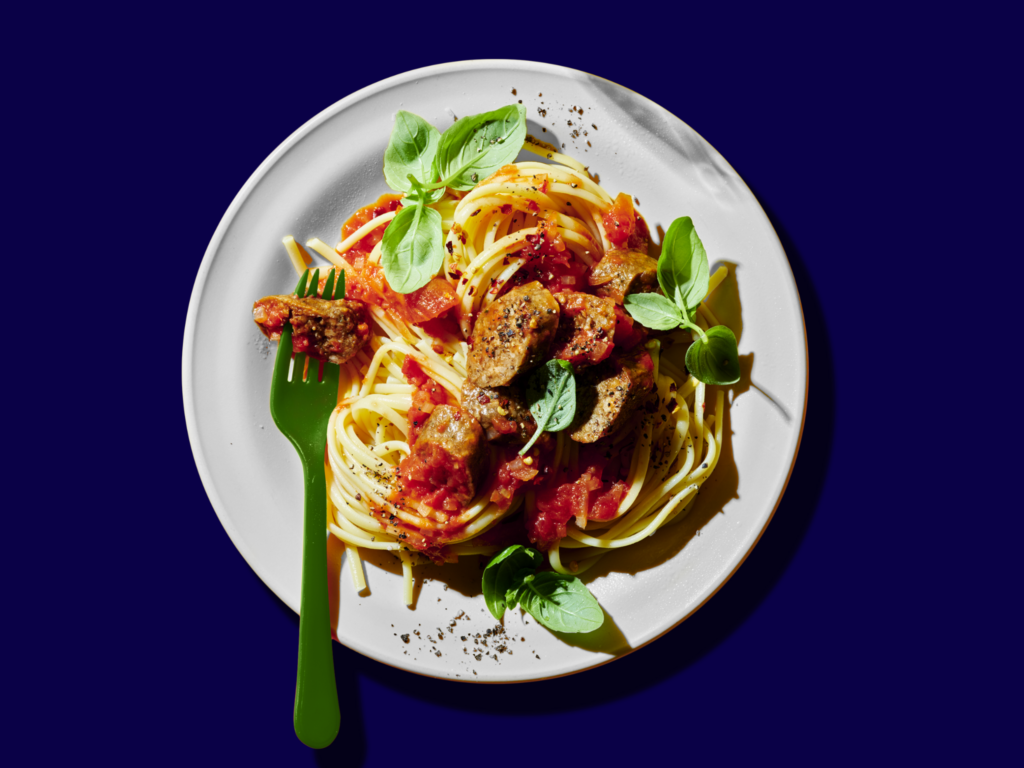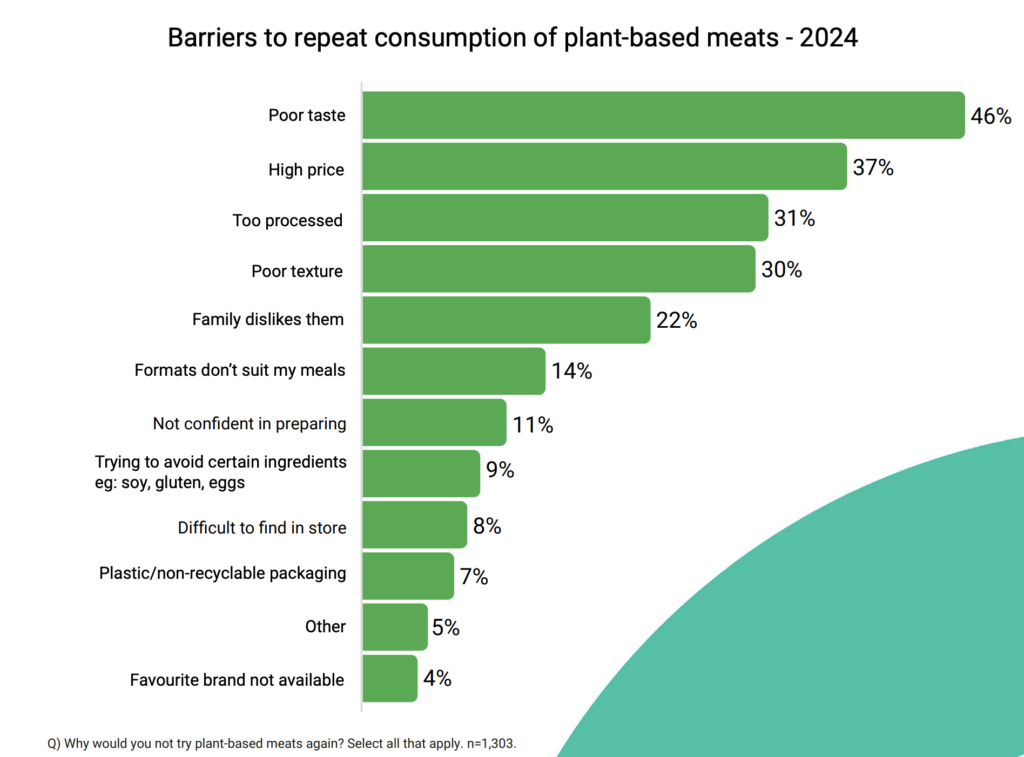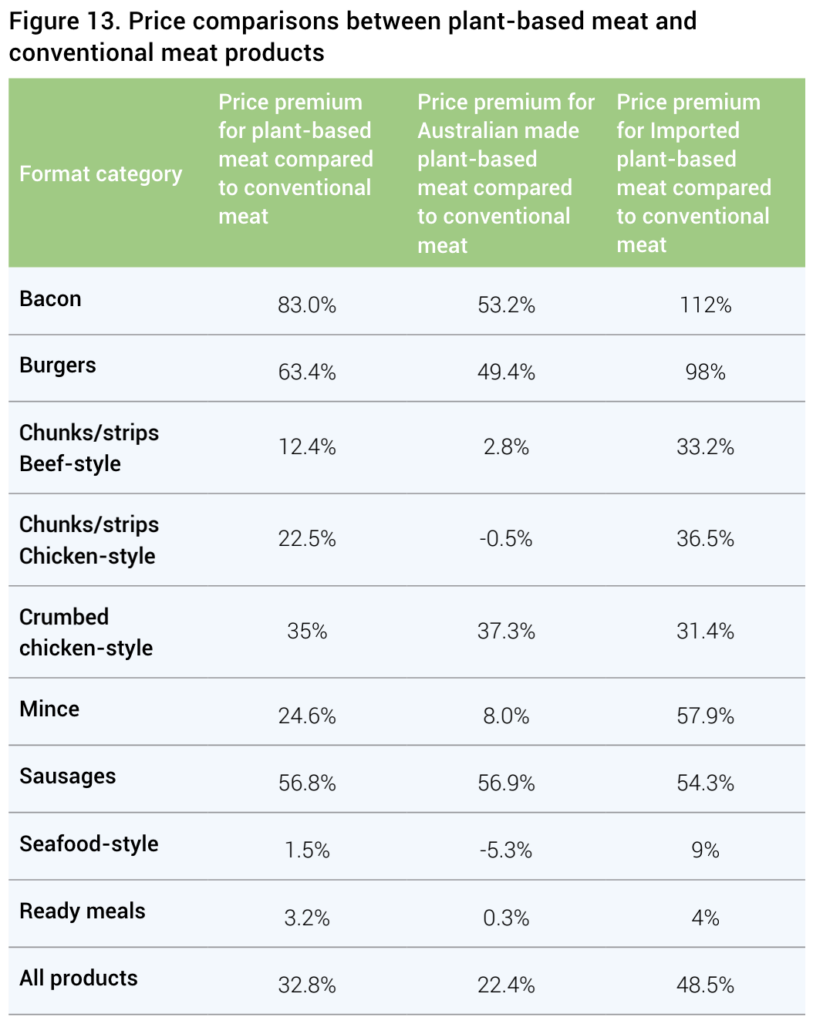5 Mins Read
In Australia, vEEF has introduced a new range of meat analogues that are priced lower than animal-derived meat, keying into consumer trends.
Nearly a year after its merger with Love Buds, vEEF is rolling out a new range of plant-based meat analogues that tackle a key consumer pain point: cost.
Available at Woolworths, the new beef mince and sausages are on par with conventional meat, at AU$4.50 per 300g pack. This is much lower than Woolworths’ own-brand lean beef and beef sausages (ranging from AU$16-22 per kg, versus AU$15 for vEEF).
They are housed in renewed packaging that uses 50% less plastic than previous vEEF products and features a Carbon Neutral label, a reference to the brand’s carbon neutral certification by the Carbon Reduction Institute last year.
“We recognise that high costs have historically deterred many conscious consumers from embracing plant-based alternatives. In these challenging times, we’re committed to striving towards making delicious, nourishing plant-based foods accessible to all Australians,” said co-founder and CEO Alejandro Cancino, who received a Michelin star during his time in Tokyo, as well as three chef’s hats, Australia’s equivalent to the Michelin star.
“By offering vEEF at a fair price, we’re empowering more people to make choices that align with their values and dietary preferences. It’s about making plant-based eating an accessible option for everyone, not just a select few,” he added.
How vEEF made its plant-based meat cheaper

Cancino founded the company as part of Fenn Foods in 2018 with his wife, Paola Moro, with a range that now includes nuggets, bacon bits, roast chicken, steaks and burgers across chilled and frozen formats.
Last year, vEEF merged with All G Foods’ Love Buds brand to form the Aussie Plant-Based Co. “This union combines our strengths, enabling significant growth in both retail (vEEF) and foodservice (Love BUDS) sectors,” said Cancino.
“Our consolidated resources and shared expertise have positioned us for continued expansion. We remain committed to delivering top-quality plant-based products across both channels, leveraging our enhanced capabilities to meet growing consumer demand,” he added. “This strategic alliance strengthens our market presence, allowing us to better serve our customers and drive innovation in the plant-based food industry.”
The latest soy-protein-based products are vEEF’s first new launches since the merger. They include a beef mince for use in tacos, pasta sauces, and more, as well as three sausages. The classic sausages are ideal for stir-fries and barbecues, the Smokey ones can be added to soups and casseroles, while you can top up pizzas and breakfast scrambles with the Chorizo version (which is much cheaper than conventional branded Chorizo sausages, which range from AU$26-50).
The company has managed to bring down the prices and overcome challenges like high raw material costs and supply chain instability through a multi-faceted approach. Its manufacturing hub streamlines production and reduces reliance on external suppliers to cut intermediary costs, while it has been working on addressing efficiencies in the supply chain.
vEEF has also continued to refine its manufacturing process, allowing it to increase output while maintaining its quality, and the economies of scaling up this way also bring down prices of plant-based meat.
Just earlier this month, a survey of 2,000 Australians found that price is the second largest barrier to the consumption of plant-based meat, with 37% deterred from choosing these products due to their high markups. That said, budgetary concerns were also the second most important reason for reducing the amount of meat Australians eat, a factor cited by 54% of respondents.
The price problem for plant-based meat

The aforementioned poll, commissioned by Sydney-based think tank Food Frontier, suggested that nearly a fifth of Australians (21%) identify as meat reducers, while another 7% are flexitarian. Meanwhile, 15% are vegan or vegetarian – meaning more than two in five consumers are either cutting back on meat, or don’t eat it at all.
This is on the back of a 47% hike in plant-based meat sales in Australia from 2020 to 2023 (across both retail and foodservice). With another 12% of citizens hoping to reduce meat this year, and four in five going meat-free at least once a week, the market for plant-based analogues seems ripe.
But the latter category suffers from a major price premium, carrying a 33% higher markup than animal-derived meat. That said, this gap has narrowed from 49% in 2020, and Australian-made plant-based mince is only 8% more expensive than its cattle-based counterpart. Vegan sausages, on the other hand, have become 27% costlier in this time.

Food Frontier found that manufacturers are prioritising health and nutrition in plant-based meat, followed by price. “Some Australian manufacturers said they absorbed price hikes whenever feasible to shield consumers from bearing the brunt, recognising the role of pricing in consumer decision-making,” the think tank’s CEO, Simon Eassom, told Green Queen in May.
“And some companies improved efficiencies in their supply chain, while others pursued vertical integration to reduce overall expenses. Another contributor to the narrowing of the price gap is the departure of several imported plant-based meats, which were more expensive per kilo than locally produced products.”
With continued manufacturing efficiencies, expansion in local production capacity, as well as some support from retailers, costs could be driven down even further, added Eassom: “If overseas trends are anything to go by, we think the Australian market, when it can, will see even closer price parity.”



